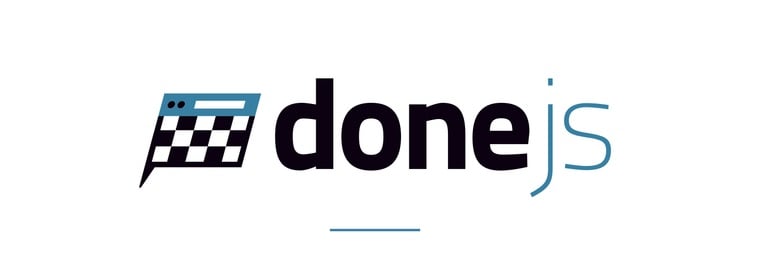DoneJS 3.0 JavaScript Framework Now Available, Here’s What’s New

Formerly known as JavaScriptMVC, DoneJS is an open source JavaScript framework used by mobile app developers for building real time UIs that can be exported to run on multiple platforms such as Android, iOS and web applications. And its creators have released a new version with DoneJS 3.0, the new version now has faster rendering and tree-shakable modules.
Here’s what’s new in DoneJS 3:
- Incremental Rendering.
- The CanJS 5.0 client-side JavaScript framework, including tree-shakable modules. Tree-shaking is a form of dead-code elimination that examines import statements to determine what code is being used. CanJS also has a more easily configurable service layer, for requesting data.
- The StealJS 2.0 JavaScript dependency loader, for easier debugging by removing the promise-polyfill when not needed.
The biggest update with DoneJS Version 3.0 is incremental rendering, which results to faster server rendering. An application is split into two parts: static content and dynamic content. Static content can be sent immediately while dynamic content has a waiting time. One big advantage of this is that Apps will be able to boot faster than traditional server-side rendering with static content while the server continues to render dynamic content and forward deltas to the client.
According to the creators of of DoneJS, their goal is for the community to get amazing applications done fast.
You can install DoneJS via NPM:
npm install -g donejs
donejs add app my-app
Image Source: Github


